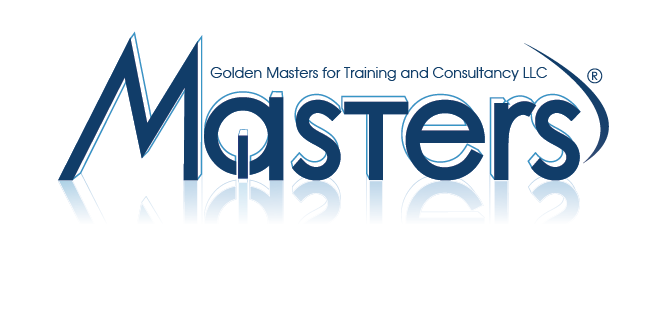The purpose of this course is to present an overview and advanced understanding of the wide range of oilfield production handling and treatment equipment. The attendee would learn not only “what” but “how” field fluid treating equipment work

?Day 1
- Chemical and physical properties of crude oils
- Types of Storage Tanks.
- Crude oil storage tanks and supply distribution.
- Separation Facility Equipment : -
- Equipment description - Horizontal vs. Vertical vessel selection - Vessel internal
- Gas – oil – and water separation
- Principles of liquid flow through pipelines
- Breaking oil/water emulsion
- Dehydration"
- Theory of emulsions , Factors promoting stability of oil – water emulsions , Treatment of wet – crude oil ,Principles of electric dehydration
- Alternating current and dual polarity electrostatic system
Day 2
- Operation
- Desolaters
- Desalting of crude oil
- Desalting process Performance and design data
- Theory, operating condition, troubleshooting
- Pumps and compressors
- Determine wash water quantity
- Design considerations
- The production Facility : -
- Making the equipment work
- Gathering pipelines system
- Process corrosion , fouling and scaling
- Facilities Integration Troubleshooting
- Retention time Carry – over problems
Water Treatment :
- Water Treatment principles Water Treatment methods Water Treatment networks.
- Calculation of hydrate forming conditions
- Methods for preventing hydrate formation – Chemicals (inhibitors (methanol), advanced methods and methanol injection rates), Heat (line heaters and heat tracing), and dehydration (glycol dehydration, refrigeration, and molecular sieves).
Day 3
o Physical properties of hydrates - Density, heat capacity, heat of formation, and mechanical properties.
o Water content of gas – Calculating the water content of sweet, sour and acid gas.
o Use of phase diagrams to understand the subtleties of hydrate formation conditions – - Phase Ioci, triple points, quadruple points, pressure- temperature diagrams, and temperature-composition diagrams, and temperature-composition diagrams.
- Determination of hydrate formation temperature or pressure
- Condensation of water vapor
- Temperature drop due to gas expansion
- Thermodynamic inhibitors
- Kinetic inhibitors and anti-agglomerators
- Low temperature exchange (LTX) units and line heaters
- LTX units
- Line heaters
- Condensate stabilization
Day 4
- Dehydration with liquid desiccants – Glycols, Safety, physical properties, Storage and - Handling and tri-ethylene glycol (TEG) o Glycol dehydration§
- TEG Dehydration process description – Glycol contactor, inlet sepeator, the regenerator and process flow.
- TEG Dehydration : Design – Inlet gas temperature, contactor pressure, number of equillirium stages, circulation rate, contactor diameter, lean glycol temperature, glycol concentration, reboiler temperature, reboiler pressure, stripping gas, still temperature andreboiler duty.
- TEG Dehydration: Operation – Operations problemsand dehydration unit start-up.
- Adsorption Process
- Adsorbent selection
- Solid desiccant dehydration –
- Absorbents, process description and dryer regeneration.
- Mole sieve simplified design – Absorption design and regeneration
o Process selection
- Solid bed dehydration
- Process description §
- Design consideration §
o Design procedure for iron-sponge units
Day 5
- Natural Gas treating
chemical Removal of ACID GASES. physical Absorption of ACID GASES. Adsorption .
- LPG and C5+ Sweetening.
- Sulfur recovery
- Liquefied Natural Gas
- Refrigeration systems
- Cascade Refrigeration
- Application of Refrigeration
Cryogenic gas processing :
- Elements of turbo expander plants
- Principles of cryogenic processing .
- Design calculations.
- The turbo expander control .
- Expander / compressor Operation .
- Principles of demethainzer operation
- Process Control and Safety Systems – Control objectives and control loops; PID control theory; control valves; and flow measurement and control. Flow of Fluids – Pressure drop in piping; choosing a line diameter and wall thickness; pressure ratings and determining pressure breaks; designing Loop Systems; Single-Phase and two-phase flow; testing and inspection; pigging; and flow splitting.
Masters Training Company was established in response to the growing need for quality training to support the business community within your Company, Department or Organization by providing a high standard of Training Programs, Courses, Seminars, Workshops and Consultancy Services to employees in a very competitive business environment.
Masters is also an approved vendor from KHDA & ILM
(Institute Review)
55 years ago(Institute Review)
55 years ago
'Oil & Gas Laboratory Operation Management' training is offered by Mesk Management Sciences Institute. Kindly contact us to inquire and find out about the schedule and complete outline.

Acquire essential well control knowledge and skills with 4D's comprehensive IWCF-certified training program.

This is a Production Technology (Process Technician) with Level-3 International Vocational Qualification (IVQ), conducted by City & Guilds United Kingdom (UK).

This is a 5-days comprehensive course that covers essential knowledge and skills related to Operation & Management of Oil Products Terminals. The program is led by an expert instructor.

This is a 5-days comprehensive course on Integrated Reservoir Modelling. The program covers details of all the core aspects of the said topic. The workshop is supervised by an expert and qualified instructor.
© 2025 www.coursetakers.ae All Rights Reserved. Terms and Conditions of use | Privacy Policy